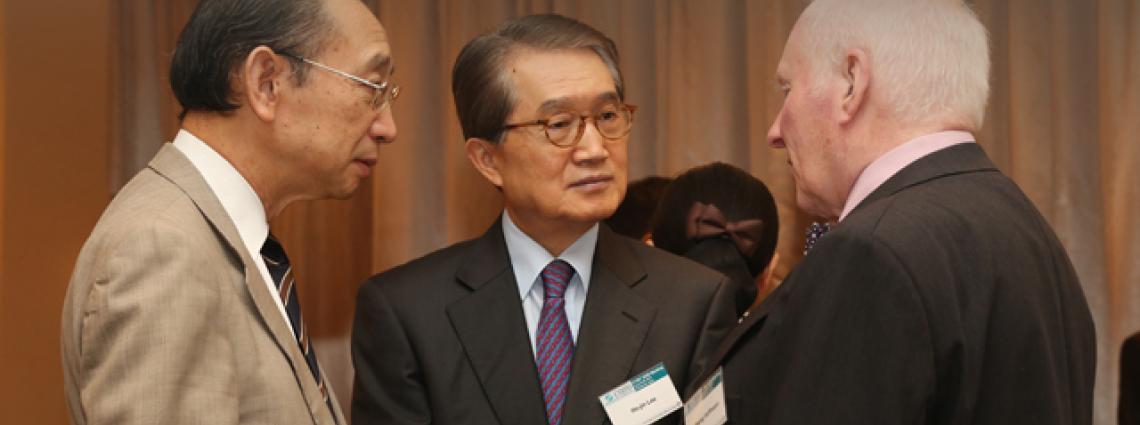GEM meeting in HIROSHIMA, JAPAN
The Hiroshima Prefectural Industrial Promotion Hall
There is nowhere other than this region where the urgency of achieving the Treaty’s entry into force is more evident, and there is no group better equipped with the experience and expertise to help further this cause than the Group of Eminent Persons.
CTBTO Executive Secretary Lassina Zerbo
As a person from Hiroshima, I have grown up hearing the stories of loved ones lost to the bomb and its insidious aftereffects. The pursuit of a world free of nuclear weapons and the important contribution of the GEM to that end have a very special significance, not only for Japan but for myself.

Japanese Foreign Minister of Japan Fumio Kishida
What the Iran deal teaches us is that multilateralism in arms control and international security is not only possible, but the most effective way of addressing the complex and multi-layered challenges of the 21st century. [It] also teaches us that the measure of worth in any security agreement or arms control treaty is in the credibility of its verification provisions. As with the Iran deal, the utility of the CTBT must be judged on the effectiveness of its verification and enforcement mechanisms. In this area, there can be no question.
István Mikola, Minister of State, Hungary; Yusron Ihza Mahendra, Ambassador of Indonesia to Japan; and Yerzhan N. Ashikbayev, Deputy Minister of Foreign Affairs, Republic of Kazakhstan participated as ex-officio members. For the host country Japan, Ambassador Kazutoshi Aikawa, Director-General, Disarmament, Non-Proliferation and Science Department, Ministry of Foreign Affairs, participated.
Participants in the meeting discussed a wide range of relevant issues and debated practical measures that could be undertaken to further advance the entry into force of the Treaty, especially in the run-up to the Article XIV Conference which will take place at the end of September in New York.
The GEM adopted the Hiroshima Declaration [Español PDF] which reaffirmed the group’s commitment to achieving the global elimination of nuclear weapons and, in particular, to the entry into force of the CTBT as “one of the most essential practical measures for nuclear disarmament and non-proliferation”, and, inter alia, called for “a multilateral approach to engage the leadership of the remaining eight Annex 2 States with the aim of facilitating their respective ratification processes”.
With the 70th anniversary of the atomic bombings in Hiroshima and Nagasaki, the entire country is filled with an ever stronger desire to eliminate nuclear weapons. This is an opportune time to build new momentum and I hope that the Hiroshima Declaration will be a step in that direction.
Japan has been a main supporter of the CTBT since its inception in 1996: it was one of the first Annex 2 States to sign and ratify and it also hosts ten CTBTO monitoring stations, including the one that detected radioactivity after the DPRK’s last nuclear test in 2013.
Journalists: see media advisory for media opportunities
25 Aug 2015
